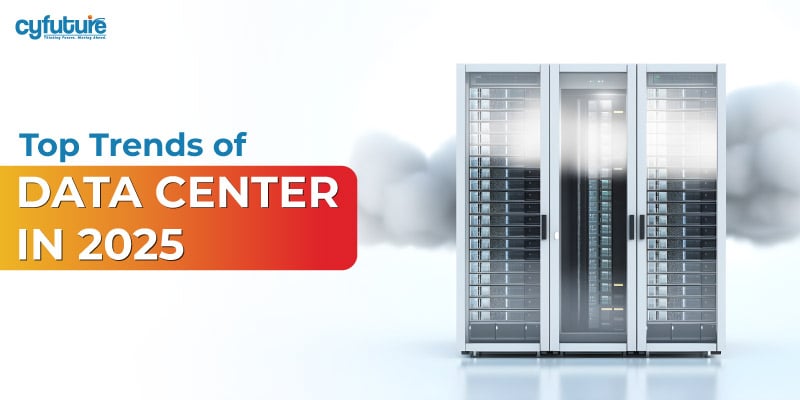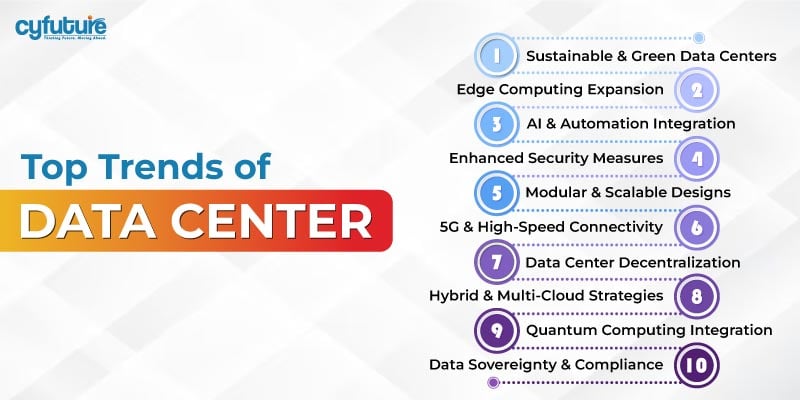-
Get Cloud GPU Server - Register Now!
Toggle navigation

This last year, we all experienced the vitality of data centers in our everyday lives. Agree? From IT infrastructure, web content, banking, and more—the application of artificial intelligence (AI), machine learning (ML), and other technologies in civilian and enterprise use has skyrocketed proof of the importance of data centers for life-changing use cases.
Furthermore, the future will see the inevitable trend of insatiable demand for dense, efficient, scalable, and savvy data center practices. This is because the demand will grow much faster with the explosive growth in AI and other data-intensive applications.
As we look forward to 2025, data centers will be at the forefront of determining the future of digital transformation.
But,
These are some of the answers that we will explore in this blog, focusing on the critical trends that businesses need to prepare for to avoid lagging behind the curve.
However, let’s take a look into a few stats and data before delving deep.
Now, let’s delve into the deep knowledge pool!
Data center services provide every element required for a data center to function properly. These encompass all activities related to the establishment, maintenance, and functioning of data centers, including those requiring staff, software, hardware, and procedures.
IT organizations may get a variety of services from data centers, including networking, website hosting, data management, and data backup and recovery. The management of data center infrastructure may be provided as a service to meet the same needs because some data centers are situated in the cloud. These cloud data center services are provided by managed service providers (MSPs) and colocation centers.

Environmental sustainability has shifted from trendy talk to becoming the core principle for most industries. Data centers have been one of the significant consumers of energy, which is putting added pressure on them to become green standard-friendly. The data center shall have gone green by 2025, both because of the regulatory pressure as well as the demand of customers.
Emerging Sustainable and Green Data Centers Trends:
Data center services will have a trend of focusing on more solutions related to sustainable practices: energy-efficient hardware, eco-friendly cooling systems, and carbon offset initiatives. Companies who can support such services will not only help businesses in complying with environmental regulations but also position them as green technology leaders.
The biggest trends shaping the future of data centers are edge computing. One of the largest trends determining the future of data centers is edge computing. By 2025, global IT infrastructure will find edge data centers as a necessary feature, with more businesses leveraging edge computing to process data closer to its source: be it on a smart device, on a manufacturing sensor, or a vehicle.
With such uptake of edge computing by businesses, there would be a large increase in demand for advanced Data Center Services to support the edge infrastructure at the underlying level. From being able to manage edge data storage and security, Data center service providers will have to adapt to optimizing connectivity and scalability.
AI and ML will largely replace approaches to operating and optimizing data centers in 2025. These will greatly contribute to making operational flows smoother, ensuring better predictive maintenance, and achieving better energy efficiency.
Emerging AI and Automation Integration Trends:
With these next-generation innovations, Data Center Services will not only be efficient but also intelligent, giving a proactive approach to managing complex IT environments.
Data breaches and cyber threats keep evolving at an incredible speed, thus necessitating all-time-high data security in 2025. With its status as the most sensitive repository for data centers, this leads to it taking the forefront of developing advanced protocols that would ensure security from hackers to protect client data.
The Data Center Services providers will have to be high-end security solutions providers with both internal and external threats to ensure businesses are protected in such competitive markets. That is saying that they will offer services like managed security, threat intelligence, security monitoring, etc to safeguard data in increasingly hostile digital environments.
As technology and business evolve rapidly, the need to innovate in the area of data center design has become a crucial one, and modular and scalable are becoming mainstream.
Deployment of 5G networks would impact data centers considerably because more accelerated connectivity-the type that’s faster and more reliable-will raise the bar for businesses in terms of greater bandwidth, lower latency, and more efficient processing of data. This would in turn put pressure on data centers to transform.
Decentralization has become an important trend that benefits the data center in terms of performance and resilience.
Hybrid and multi-cloud strategies enable companies to be flexible, resilient, and of the highest performance.
Quantum computing will change computing. This is the technology that will make computations far more powerful than any other computing technology in the world.
As governments worldwide toughen data protection laws, data sovereignty will be a contentious issue in 2025. Companies are dealing with both local and international laws regarding data protection that often demand data be stored within a certain region.
How Data Sovereignty Affects Data Centers:
With such challenges to businesses, demand for Data Center Services will increase as organizations seek answers in compliance, data sovereignty, and the safe handling of data.
In 2025, data center services are an epicenter of innovative and forward-thinking trends. The AI/ML/sustainable technologies umbrella once again proves that modern life is all about data centers. As applications fraught with heavy use of AI and data grow, the need for scalable, efficient, and environmentally conscious data centers will skyrocket.
The evolution of the industry continues to mark increased investment and acceptance in the sectors of renewable sources, edge computing, and quantum computing as these bolster enhanced performance and resilience. Advancements in data sovereignty regulations and advent of 5G connectivity will necessitate robust and compliant infrastructures. Therefore, data center services will be front-runners in digital transformation, redesigning future enterprise IT with innovative, secure, and sustainable solutions.